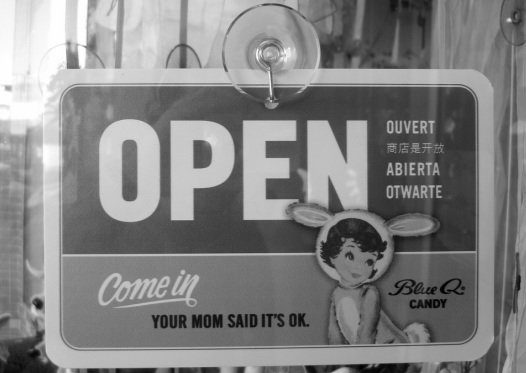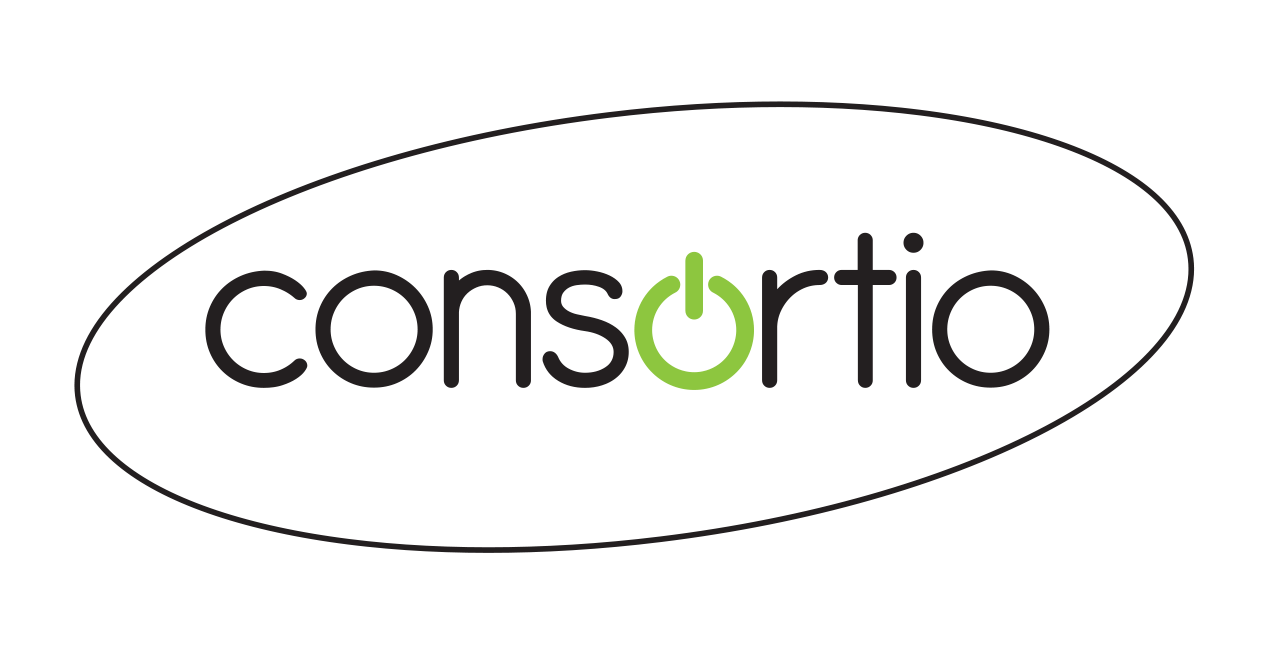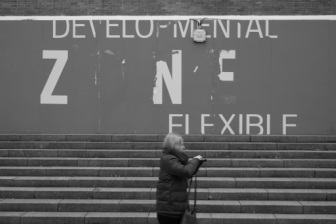|
Sounds like something a wise man once said doesn't it? A wise man may well have said it but so did I and I continue to say it to any career coaching client who I work with; experienced professional, graduate or school-leaver and I want to explain why these few words are so key to you getting what you want from your career.
Let's be clear I am not advocating saying anything in your CV or interview performance that is untrue, far from it, what I am encouraging is that we all learn to amplify our message to employers by being comfortable in saying positive, upbeat and impressive things about ourselves. There is a particularly English / British tradition that modesty is a laudable quality, that to be loud and obvious is somehow crass and a little distasteful. I agree that clumsy and obvious self-promotion can be counter-productive and at worst annoying but that is not what I am advocating here; I am saying to everyone that is frustrated by being overlooked, a close second to the successful candidate or by the lack of progression in their career that you need to forget false or real modesty and begin to think about everything you say and write being part of an accumulated PR strategy that will help you to tell the world how brilliant you are! It is not about dwelling on any of the descriptions that have been used to keep people in their place...it's not 'showing off', it's not 'being big headed' and is certainly not 'boastful' it is simply being your own biggest fan and being able to lucidly and convincingly tell the world about the great things you have done, can do and want to do. People generally speaking love to meet authentic, confident, lucid and interesting people. Whether that is in the pub, on holiday, in work or in an interview. People remember people who are able to demonstrate their self-confidence and their skills with strong examples and body language, voice, eyes, smile and posture that all back up the content. It is liberating not to be always worried about what people think of how you are saying something when you come to terms with the fact that it is what you are saying that they will focus on. If you fail to flag up something that is important and relevant because you don't want to show off then who wins? If the CV next to yours on the desk or the person after you in the interview is able to show what they can do and do it in a proud and confident and persuasive way then who wins? Modesty is the enemy of opportunity - all candidates need for the sake of their own futures to be able to suspend their modesty and get the message across in no uncertain terms...... Paul Goring
1 Comment
3/5/2014 0 Comments Mind the gap.... Recent intensive sessions with some of my career coaching clients have made me increasingly aware of just how out of sync candidates and recruiters can be when it comes to understanding what a CV is for, what it needs to do and just how fundamentally critical it's influence on the whole recruitment process can be. I have spoken before about the way that I work with candidates; getting them to think about themselves as a product / brand, about how to market that product / brand and then to understand that their CV is basically a marketing flier for that product / brand and an interview is in effect a product / brand pitch...so with all of that in mind and with my latest insight into the candidates perspective complimenting my 15+ years of wearing the recruiters hat; I want to explore the very real gap between what candidates offer recruiters in their CV (there must be a better word than that, it means 'the story or journey of m y life in Latin...really?!) and what recruiters really need the CV to say and do. So let's get Key Debate Number 1 out of the way immediately...the Personal Statement / Profile Statement or Introduction (I'm not married to any of those names for it really) must be in the first person, no questions, no arguments. Why? Well for me the first thing on your CV sets the tone just like the 'hand shake moment' when you are networking. So why use archaic language when you are talking about yourself and when you want to make a positive impression? When someone says "I" in their Personal Statement then the recruiter is engaged from the start, a relationships is being formed and there is somehow more validity and humanity in the words because you are owning them and not allocating them to this mysterious third person. One of my favourite personal brand words is Congruence and I am often taken aback by the absence of it; when for example I sit down with a graduate who is friendly, approachable, informal and warm and then read their CV commence with a third person description of themselves that would not be out of place in a Dickens Preface! Authentic and Appropriate (two more of my favourite personal brand words) dictate that one should be the "right sort of me" for each different circumstance and environment. Well in a CV one chance to impress type situations then surely the 'right sort of me' is the one that is natural, warm and which can create a connection with the reader? I for one am far more engaged when someone tells me in their CV...."I love the challenge of working to demanding deadlines and I get a real buzz from hitting personal and team goals" rather than "Charlotte has a passion for personal achievement and she thrives under pressure" no-brainer surely? So in short whatever the candidate calls the first bit on page one of their CV they need to understand that all a recruiter wants to gain from reading it is a sense of their personality, what is important to them, what they want in the future and whether they seem to fit the brand that the vacancy is with....they want a sense of what the candidate is all about and to give that most clearly first person and proper engaging vocabulary does it for me every time. I always try to impress upon my coaching clients after we have covered the 'intro' that they have now shaken the hand of the recruiter and said hello and that it is now time to now tell them what you can do and show them how well you can do it! Many CV's slip into the easier go to of Education & Qualifications, which I do concede in some roles is crucial but in the majority of the jobs people apply for it is the list of competencies / skills and knowledge that dictates success and usually dominates the job specification against which the recruiter is checking each CV. So if you are a candidate play to what the recruiter wants; they you to mention as many of the key competencies that they have on their list as possible and not just in a talking the talk way but very much in a walking the walk way. So it's all about listing the desired competencies, illustrating that you can do and/or have done and some tangible evidence to back it up; qualifications, training, results and promotions. Sell them you and what you can do in mutually understood language that of competencies and real life tangible outcomes of you doing those things. Finally it's the career history, education and training bit. From a recruiters point of view they are looking very much for succinct, perhaps bulleted content that tells them in concise short-hand what the candidate has done so far, who for, how successfully and for how long. CV's that go into the minutia of every role down to what the candidate did on Tuesday's and the name of every one of their managers just overwhelm and probably tired and under pressure recruiter. Again I am back to the gap between a candidate telling recruiter everything (or what you think they need to know, which is often everything) or making it easy for them to gather the information that they need to know. I am a great advocate for the schools employability workshop we run called 'You are the Recruiter' which is a part of our Employability offering to Secondary, Further and Higher Education; Why? well probably because I wrote it and it helps put bread on the table but mainly because I am convinced that being put in the shoes of a recruiter just for a few hours at the right age, where choosing between CV's under time pressure is the end game, is invaluable in helping to educate tomorrows candidates on what a recruiter looks for and needs. That knowledge is powerful. The CV game is not always about pure candidate talent in terms of qualifications, job ability and achievements sometimes (and increasingly often in my experience) candidate talent in terms of communicating with the recruiter in the right way, with the right structure, focus, vocabulary and personal brand clues is crucial. Obviously the candidate needs the right stuff to 'show off' but the fact is that many others increasingly have the same stuff; as qualification standards rise, work placements / intern-ship numbers grow and part-time work for students is more common. Back to brand of you, flier and pitch; candidates that don't 'get' this will increasingly find that the gap between them and the candidates that do growing. That's is why what I do is so rewarding; a CV rewrite coupled with coaching to help a clients to see themselves as a brand so often changes their 'luck' in the job market. Paul Goring 2014  Working with one of my regular career coaching clients this week I had a revelation, not a blinding flash of light or anything dramatic, but a genuine realisation that one of the key things that is essential to being open to, attracting and considering all opportunities is a truly open mind. An open mind unburdened by parental influences, that is not restricted by a culturally imposed vision of what a career means or what it might involve and also a mind open and able to let people know that you are looking for a new challenge and able to ask them about what they do and then crucially, actually listening to what they say. The key conversation with my client went something like this; I suggested a possible occupation, one where I knew there were vacancies, that my client had the skills set and personality required and which fell within their commuting distance requirements. Their answers was 'Oh no I don't want to do that...(5 second delay)....what do they do exactly?' That in a nutshell is the closed mindedness that I am warning against. That could have been a job advert on line, a conversation or a recommendation that my client might have just wasted by not being open-minded and receptive to new ideas. We all have stereo-types knocking around in our minds; environment, parents, experience and preference (however ill-informed) all create them but to truly give yourself every chance of finding a role that will satisfy, challenge and develop you, you will need to get rid of the 'office work is all paperwork / sales is all cold-calling and account management means the same thing in every company' approach because it will limit your chances and also in turn display a lack of the both the imagination and desire to find the right thing and can never do you no favours. The conversation continued and we found out that actually my client had very little idea about very many different career paths and job titles infact they had a worryingly small amount of knowledge for someone that was not fresh out of school or college and might have had an excuse for not being very worldy wise about such things. My advice is; find out more, find out detail and challenge yourself not to present a closed mind to any opportunity. Why? Well in my opinion on many occasions your career will find you rather than vice versa, in which case you need to let it find you rather than not even listening when fortune comes calling. Many of the successful people that I know in challenging, responsible and indeed well paid roles did not set out to be a ............ whatever but instead have taken time to understand what it is that they offer and then when the right opportunity arises and they asked the right questions and then saw that a match might be possible and grasped the opportunity. Many skills and competencies do span across a whole range of occupations. Knowledge is clearly very important but training and additional qualifications (often in the role) can help you to overcome those barriers. Ask yourself which industries are struggling to recruit (and trust me despite the financial climate as a write this there are many industries with long vacancy lists that they cannot fill.) Research the businesses / sectors involved and really try to understand what it is they do. Ask people in the industry and seek out connections in your network who can advise, inform and illuminate the whole picture for you. There is nothing wrong with having a dream job and being geared towards it from an early age within education but times change and the role that you always wanted to do might not even be what you think it is. So in short; have an open-mind, know what a job involves before you commit or reject it and use those around you to inform you and you will find that many more opportunhities arise and that the world looks a different place once the blinkers are removed. 6/21/2012 1 Comment Networking Yourself into a Career Sometimes it surprises me that candidates struggle to connect with potential employers when their immediate network of friends, family, team mates or social contacts could help them out in all sorts of ways. I thought I would talk about how you can give yourself the best chance of connecting with the right job opportunities based on my own experiences of both looking for jobs, helping others to and seeing how successful candidates use their connections. What should you have in place to maximise your chances? Ask People What They Do / Tell People what You Do – I was really surprised when a cricket team mate, who had recently graduated and was looking for a career opportunity, was unsure of what I did in my work. I then realised that we only ever talked about cricket in that social circle. We both I guess need to take responsibility for the not knowing; but once we had talked and he asked for help, we spent time getting his CV the way it needed to be and I was then able to get his CV in front of perhaps 15 key contacts which lead to three interviews within two weeks and two job offers within a month. All from one conversation between two people that knew each other already..... LinkedIn -–I am huge fan of LinkedIn for many reasons but as careerist or graduate it makes all sorts of sense to create and build a profile for yourself using this platform. You will be surprised by how many people you know who are already active on the site and also how many people they know or have access to through their connections. My 1,100 connections means I have 11,500 people on my network and access to 7.9m through my connections it takes time to build numbers and needs and weekly investment of time but it pays you back! CV - make sure you have a new, updated and well presented copy of your CV with you at all times or at least the ability to e-mail a copy of it to new contacts quickly. You never know when a conversation might end up with the line ‘I know someone that is looking for someone with your profile’; the ability to follow up on these golden opportunities is crucial make the most of your good fortune. Expand Your Network - traditional British reserve means we are not fantastic at putting ourselves out there and advertising our skills to the world but you will be amazed how responsive potentially important contacts can be. Contacting industry leaders, local specialists and potential mentors to help you and advise you on their area of expertise is a huge compliment, first a foremost; you are saying, in essence, I know you are a key player, I want to work in your industry, can you help. Also attending events relating to your potential career industry and asking questions, seeking out people that you think may be able to help and absorbing information about the industry will help you hugely. The key as far as I am concerned is always being on duty for your career. Any social setting or situation has potential and people that know you and like you will help you, so give them every chance to do so by letting them know that you need help. Managing your own career is very much the way it is now; the lower numbers of job opportunities, the changing relationship between employersand employees and the current economic downturn all add up to mean that you need to be your own marketing department for the brand of you and that concept once absorbed and understood should inform the way that you communicate with the network around you and maximise your chances of getting lucky. I think it was golfer Gary Player who said ‘it’s amazing, the harder I practice the luckier I seem to get.’ 4/12/2012 0 Comments What is Career Coaching?We offer one to one coaching sessions specifically focused on where you feel currently ‘stuck’ in your career and what you want to achieve next and then we help you to identify how realistic your goals are and then work with you to develop a plan and put the skills in place to help you to achieve your goals.
Our Methods We use traditional coaching methods and also when appropriate we can implement Emotional Intelligence exploration, a Personal Brand review and practical one-to-one sessions on interview preparation, CV writing and application strategy. Who is it for? This is useful for job seekers, people recently made redundant, students beginning the process of thinking about their career, graduates seeking elusive jobs, people wanting to carve out a career in a new industry, those returning to a career after a break and for people who simply want to do a ‘career audit’ to establish their next move. How many sessions will it take? Of course everyone is different but in our experience it really depends on what needs fixing. A simple review session and some strategy work involving applications and a CV rewrite can take perhaps 2 or 3 sessions whereas if you are looking for a complete career change or need to review and explore your past experience and focus them into your future planning then maybe 5 or 6 sessions might be right but we will, of course, tailor our approach to your genuine needs. The success of our work always depends on you. Take a look at our on-line booking system for Career Coaching Clinic slots! |
Paul GoringAGR MIPR BPS Lvl B+ Archives
November 2018
CategoriesAll Appraisals Career Career Advice Career Coaching Career Decisions Careers Advice Career Support Coaching Communication Confident Interviews CV / Marketing Flier Education Employability Employers Events Grad Careers Internships Interview Performance Interviews. Interview Advice Interview Tips Job Advice Lucid Stories Management Skills Networking One To One Meetings Personal Brand Personal Development Presentations Reflective Learning Returning To Work Staff Development Student Employability Understanding The World Of Work Your Own Career Manager |





 RSS Feed
RSS Feed
